The spirit of 1971: Reflections on liberation, aspirations, and modern challenges

During the period when Bangladesh was still a part of Pakistan, the resistance of its people began against ethnic discrimination, regional disparities, economic inequality, oppression, military rule, and ultimately the denial of elections and the perpetration of genocide. The Liberation War was not merely a military conflict, but a culmination of years of exploitation and injustice imposed upon the people of the then East Pakistan.
The Pakistani forces systematically targeted intellectuals who had played an active role in fostering cultural and ideological consciousness against discrimination and oppression. This brutal attack began on the night of March 25, 1971, and continued throughout the year. Intellectuals including teachers, journalists, writers, and artists were killed across the country. On December 14, 1971, during a curfew, this carnage reached its peak when many prominent intellectuals were brutally killed in several places. Local collaborators, known as Razakars, played a pivotal role in assisting the Pakistani military, particularly in targeting and killing intellectuals.
The systematic elimination of Bangladesh's brightest minds was an attempt to cripple the intellectual foundation of our nation. However, the Liberation War saw massive participation from all sectors of society—workers, peasants, and ordinary citizens, excluding only a few collaborators/war criminals. The price was steep: millions were martyred; countless women and men were tortured and injured; and an entire nation lived through the trauma of pain, fear, and loss.
The essence of the Liberation War was to create a Bangladesh free from discrimination and oppression. It was an aspiration for a country unlike Pakistan—authoritarian, communal, and centred on the wealth of a select few. The dream was to build a nation where equality, justice, and opportunity would be accessible to all citizens, regardless of their social identity or economic standing.
In the 53 years of independence, Bangladesh has experienced numerous governments, each with its promises and pitfalls. The post-liberation government under Sheikh Mujibur Rahman, though initially extraordinarily popular, eventually shifted towards authoritarian rule. The establishment of Rakkhi Bahini and a one-party system brought disillusionment. Soon afterwards, military regimes took hold of the country for nearly 15 years, pushing Bangladesh further away from the original aspirations of the Liberation War.
However, people did not give up. Through struggles, sacrifices, and an unwavering determination, they fought to restore democracy, culminating in the fall of the military rule in 1990. Yet, even after the restoration of elected governments in 1991, the hopes that emerged out of the Liberation War often remained unfulfilled. The alternating rules by BNP, Awami League, and their coalitions failed to bring significant changes in governance, with corruption and authoritarian practices persisting.
While Bangladesh has achieved noticeable economic growth since independence—with expanding GDP, improved infrastructure, and higher literacy rates—the promises of equality and justice remain elusive. Inequality has multiplied over the decades. The commercialisation and privatisation of essential services like healthcare and education have put them out of the reach of ordinary citizens. A single illness can push a family into poverty, while the cost of education continues to financially cripple many households.
At the same time, Bangladesh's natural resources—rivers, hills, forests, and land—have faced alarming levels of pollution and exploitation. The so-called development has often come at the cost of the environment, with deforestation, river grabbing, and environmental degradation becoming rampant. An oligarchy has emerged, concentrating vast amounts of wealth in the hands of a few powerful groups and corporations, much like Pakistan's infamous "22 families." Companies like the S Alam Group, Beximco, Bashundhara, Summit and Orion have rapidly accumulated wealth with the direct patronage of the state, while the country's wealth has been plundered.
In recent years, the centralisation of political and economic powers has been accompanied by the rise of authoritarianism. Institutions such as the police, Rab, BGB, and the DGFI have been used to suppress dissent. Private groups—such as Chhatra League and Jubo League affiliated with the ousted Awami League party—have aided oppressive regimes, contributing to an atmosphere of fear and misrule.
Yet, resistance remains a defining feature of Bangladesh's history. Just as the youth of 1971 rose against the injustices of Pakistan, the recent July uprising reflects a renewed aspiration for a just and discrimination-free Bangladesh. The youth, just like in 1971 and in the 1980s, once again took the lead in resisting oppression in 2024, standing against indiscriminate killings and injustice. Their actions remind us of the unfinished goals of the Liberation War and the need to revive its true spirit.
The July uprising is not, therefore, an isolated event—it is a continuation of the Liberation War's aspirations. It reflects the collective will of the people to reclaim the dream of a Bangladesh that is free from discrimination and oppression. The values of 1971—equality, justice, and freedom—must once again serve as guiding principles for the nation. The 2024 uprising showed that the people of Bangladesh never give up or accept defeat. It also opened up the possibility of moving forward after the fall of an autocratic ruler.
We must remember the sacrifices made during the Liberation War and recognise that the journey towards a just and equitable Bangladesh is far from over. While some progress has been made, the spirit of 1971 demands more. It calls for an end to inequality, exploitation, and environmental destruction. It urges us to resist authoritarianism and uphold the ideals for which millions gave their lives.
As Bangladesh moves forward, it is essential to keep the dreams of the Liberation War alive—to strive for a nation that is truly free, just, secular, environment-friendly, democratic, and inclusive. The spirit of 1971 lives on, and it is up to the present generation to ensure that its promises are fulfilled. We do not want to see any more profit-making projects at the cost of the environment and people's livelihoods. We do not want to see any autocratic, patriarchal rule with discrimination based on religion, gender, ethnic identity or class. We do not want to see the rise of oligarchy at the cost of public rights. We do not want to see any domination by imperial or sub-imperial power. We want to live with freedom, dignity, diversity, and a clean environment.
Anu Muhammad is former professor of economics from Jahangirnagar University.
Views expressed in this article are the author's own.
Follow The Daily Star Opinion on Facebook for the latest opinions, commentaries and analyses by experts and professionals. To contribute your article or letter to The Daily Star Opinion, see our guidelines for submission.
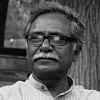
 For all latest news, follow The Daily Star's Google News channel.
For all latest news, follow The Daily Star's Google News channel. 
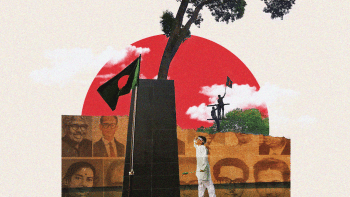

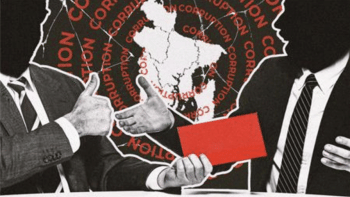




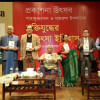
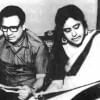
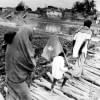



Comments